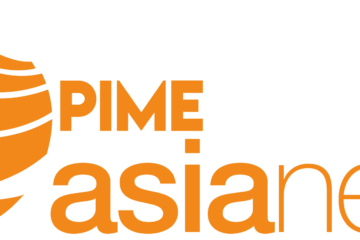Gershon Baskin was speaking for himself and trying to get into the door of the prime minister’s office to convey some of the messages he was getting from Hamas, with a view that they might be able to settle the prisoner situation
Click Here to Listen
Transcript
ROBERT SIEGEL, host: The agreement between Israel and Hamas, to exchange over a thousand Palestinian prisoners for the captured soldier Gilad Shalit, was brought about thanks to a couple of intermediaries. The Egyptians were involved, so were the Germans. But the agreement also depended on some back channel communications between Israelis and Palestinians in Hamas.
Middle East correspondent Patrick Martin of the Canadian newspaper the Globe and Mail has written about those communications, and he joins us now from Jerusalem. Welcome to the program.
PATRICK MARTIN: Hi, Robert.
SIEGEL: And let’s start with an Israeli. I guess he’s a peace activist named Gershon Baskin, and the phone call that he received a few days after Hamas had taken Gilad Shalit captive back in 2005.
MARTIN: Sure, Robert. It’s just three days after Gilad Shalit had been abducted. And the phone rings in Gershon Baskin’s office and it’s this member of Hamas at the university in Gaza, an economist that he met at a conference six months before in Cairo. And they had talked at the conference, gotten to know each other. And he was calling to say: Gershon, we’re getting the daylights bombed out of us. We’re getting hit hard because of this abduction. Is there anything we might be able to do to try to get the two sides to climb down? Maybe we can get the soldier back to you guys somehow.
And Gershon didn’t know what he had in mind. And he said: Well, listen, why don’t you try and find the soldier’s father, and I’ll go and see if the prime minister will speak to me here in Gaza, Ismail Haniyeh. So, he did and Gershon found the father. And eventually, by the end of that day, the prime minister in Gaza spoke with the father of Gilad Shalit. And a process began that involved Gershon and Ghazi Hamad, a spokesman for Prime Minister Haniyeh, from that day on.
SIEGEL: Yes. The back channel primarily is between the Israeli, Gershon Baskin, and the Palestinian, Ghazi Hamad.
MARTIN: That’s right. At that time, Ghazi Hamad was a spokesman and a political adviser for Haniyeh.
Gershon on was in fact speaking for himself and trying to get into the door of the prime minister’s office to convey some of the messages he was getting from Hamas, with a view that they might be able to settle this prisoner situation
SIEGEL: At one point, Israeli Prime Minister Ehud Olmert’s representative for this matter, Ofer Dekel, tells Baskin, as you reported, that his involvement was now over. But Baskin is told by an Egyptian general named Nader al-Assar, no, we want to keep on working this thing. Who is Nader al-Assar?
MARTIN: Well, Nader al-Assar at that time was the Egyptian consul at the embassy in Tel Aviv.
Now, as Gershon would find out pretty soon, he was a general, in fact, not just the consul. And he was from Egyptian intelligence. And he asked to meet with Gershon. They met a couple of days later in East Jerusalem. And he said to Gershon, Gershon, don’t listen to Ofer Dekel. We need someone like you: intelligent, independent who can communicate between the two sides.
So, Gershon continued this. But he wondered, how the devil did this Egyptian know that Ofer Dekel the told him this, and said we don’t want to involved anymore.
SIEGEL: Let’s flash forward to April of this year when, of course, there’s been a huge upheaval in Egypt. And evidently the Israeli prime minister, now it’s Benjamin Netanyahu, appoints a new mediator and takes a different interest in the case.
MARTIN: Yeah, this is David Medan. Medan is a senior Mossad fellow in Israel, who’s generally not known to anybody in public life, but he was appointed. A
nd as Gershon had done in the past, he contacted that negotiator and said, look, I have this channel of communications into senior levels of Hamas. Would you be interested in it? And for the first time, he found a negotiator who said, tell me about it.
He explained who he was talking to. And, of course, the Mossad man had him checked out, found it was all quite legitimate. So, he invited Gershon to begin communicating to Ghazi Hamad. It’s the first time it’s really taken seriously. And Gershon told Ghazi, look, after all these years we’ve finally got somebody who is ready to listen to here. And so the requests were then coming from Hamas and being listened to at the highest levels inside Israel.
SIEGEL: Patrick Martin of The Globe and Mail, the Canadian paper, thanks for talking with us.
MARTIN: Pleasure, Robert.
(SOUNDBITE OF MUSIC)
MELISSA BLOCK, host: You’re listening to ALL THINGS CONSIDERED from NPR News. Transcript provided by NPR, Copyright National Public Radio.

